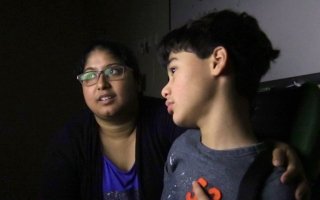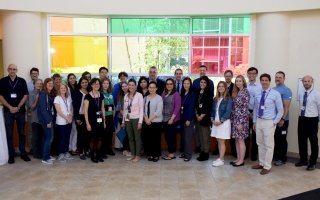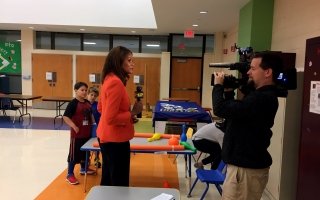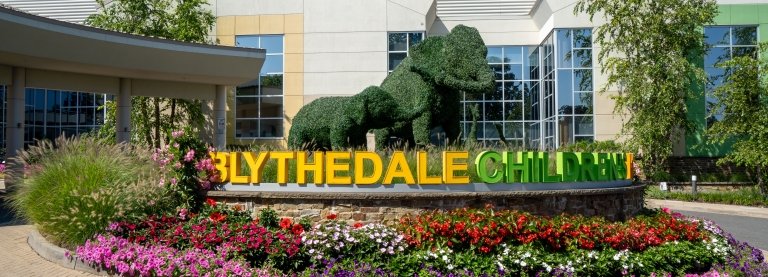The Mai Family Foundation Grants Funding for Neurotechnology
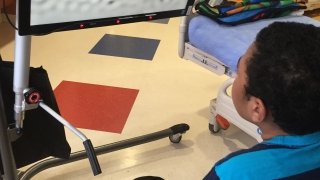
Traumatic brain injuries, cerebral palsy, childhood stroke, and vision loss due to brain injury affects how a child can see, recall information, communicate and walk from onset to adulthood. Neurological injuries and impairments can dramatically change everything for a child, and their parents often search for life-changing breakthroughs to help their child.
In 2015, the Burke Neurological Institute partnered with Blythedale Children’s Hospital to bring neuroscience advances to children with neurological impairments through the Burke-Blythedale Pediatric Neuroscience Research Collaboration. The Burke-Blythedale team believes the first step toward discovering effective therapies for children with neurological injuries and impairments is to be able to track, measure and analyze both brain behavior and brain function with far greater accuracy and precision than the current status quo.
Presently, the clinical practice of neurorehabilitation uses intensive training therapies to try to improve neurological function. Yet, current measures of function are insensitive, scientists and clinicians often cannot quantify whether function has changed. A new approach to monitoring neurological function employs low-cost health-tech devices to measure change in movement, vision, and thinking. These devices in use at the bedside can measure behavior and function very precisely enabling more sensitive testing of therapies than currently possible. In turn, this can accelerate the discovery of what does (and does not) work for neurorehabilitation. The Mai Family Foundation’s generous grant supports the goal of real-time tracking and measurements of neurological behavior and function in children undergoing neurorehabilitation at Blythedale Children’s Hospital.
Burke Neurological Institute’s Dr. Jeremy N. Hill is leading the innovative neurotechnology initiative made possible by a system he developed called Scalable Neurological Assessment Platform (SNAP). The SNAP system is comprised of three technological components: computerized tracking, real-time physiological measurement, and big-data analysis. First, computerized tracking is gathered by using low-cost eye-tracking and markerless motion capture technologies to record eye, hand and body movements at the time neurological function occurs. For example, the tracking of the ‘visible’ movement of a child gripping and drawing with a crayon. Second, real-time physiological measurement is collected by using wireless electroencephalography (EEG) headsets to record brain electrical activity at the time neurological behaviors occur. For example, the measurement of ‘invisible’ brain processes such as the mental effort being made by the child to grip and draw with a crayon. Third, big data analysis is achieved by the development of a robust database comprised of the tracking and measurement assessments.
With the philanthropic support of the Mai Family Foundation and the dedication of Dr. Hill, integrating SNAP into the practice of pediatric neurorehabilitation at Blythedale Children’s Hospital will push the envelope of the current state of neurorehabilitation. Dr. Jason Carmel, an assistant professor of neuroscience in pediatrics at Burke Neurological Institute and pediatric neurologist at Blythedale Children’s Hospital said, “It offers researchers the capability of data mining to generate hypotheses for tomorrow’s breakthroughs. It offers clinicians the promise of evidence-based results and personalized therapies to advance neurorehabilitation. Finally, it offers children and families renewed hope. Seeing real-time tracking and measurements reinforces belief in progress and has the advantage of being a powerful motivator on the journey to restore neurological abilities.” Integrating neurotechnology with neurorehabilitation over the next three years at Blythedale Children’s Hospital holds potential to impact a larger population of children and adults by extending beyond Blythedale through its adoption by other leading hospitals. The Burke-Blythedale Collaboration foresees a bright future for neurorehabiitation enabled by the Scalable Neurological Assessment Platform.
